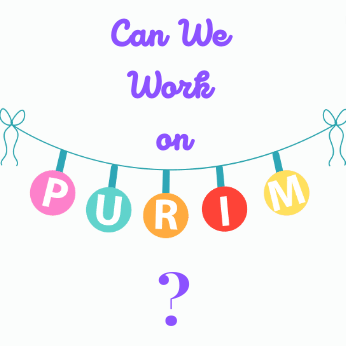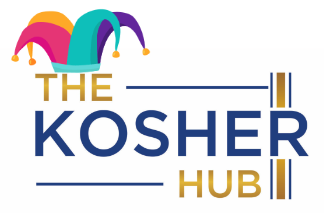To work or not to work on Purim? That is the question
Purim is a festive holiday that is celebrated by Jews around the world. It commemorates the events that took place in ancient Persia, where a plot to destroy the Jewish people was thwarted by the bravery and cunning of Queen Esther and her cousin Mordechai. Purim is a time of great joy and celebration, marked by feasting, drinking, and the exchange of gifts and charity. But what about work? Can Jews work on Purim, or is it a day reserved solely for celebration and religious observance?
The day that you can’t work is actually the day before Purim which is the fast day before Purim is known as Taanit Esther or the Fast of Esther.
It is observed on the 13th day of the Hebrew month of Adar. The fast begins at dawn and ends at nightfall.
The Fast of Esther is considered a minor fast day in the Jewish calendar, and it is not as strict as some of the other fast days.
Unlike Yom Kippur, for example, which is a full 25-hour fast with no food or water, the Fast of Esther allows for the consumption of food and drink before sunrise and after sunset.
However, during the daylight hours, Jews who observe the fast abstain from food and drink, as well as from other activities that are considered pleasurable or distracting, such as bathing or wearing perfume.
So in a nutshell “work or any kind of pleasurable/distracting activity” is not allowed on the Fast of Esther which is the day before Purim.
According to Jewish tradition, Queen Esther and the Jewish people fasted for three days before she went to King Ahasuerus to plead for the salvation of the Jewish people from the evil Haman. The Fast of Esther is therefore observed as a way of commemorating Esther’s bravery and self-sacrifice, and as a way of preparing oneself spiritually for the joyous holiday of Purim.
So who doesn’t work on the day of Purim?
The answer to this question depends on a number of factors, including the level of observance of the individual Jew and the specific rules and customs of their community. At the most extreme end of the spectrum are the Ultra-Orthodox, who adhere strictly to Jewish law and tradition and observe Purim as a day of complete rest and religious devotion. For these Jews, working on Purim is generally not performed, and the day is spent in prayer, studying the Torah, and celebrating with family and friends.
At the other end of the spectrum are secular Jews, who may view Purim as simply a cultural or historical holiday rather than a religious one. For these Jews, the question of whether or not to work on Purim is largely a matter of personal choice. Some may choose to take the day off work to participate in Purim celebrations, while others may continue to work as usual.
In between these two extremes are a range of Jewish communities with varying levels of observance and customs surrounding Purim. For example, many Conservative and Reform Jews observe Purim as a joyful holiday but may not strictly adhere to all of the traditional rules and customs. In these communities, working on Purim may be acceptable as long as it does not interfere with religious observance or the celebration of the holiday.
If you like this funny Purim Mug check out the range at The Kosher Hub on Etsy – HERE
So what are the specific rules and customs surrounding work on Purim?
According to Jewish law, there are no specific restrictions on work during Purim. However, many Jewish communities have developed their own customs and traditions surrounding work on the holiday. For example, some Jews may choose to take the day off work to attend synagogue services, participate in Purim carnivals or parades, or spend time with family and friends. Others may choose to work during the day but take time off in the evening to celebrate the holiday.













